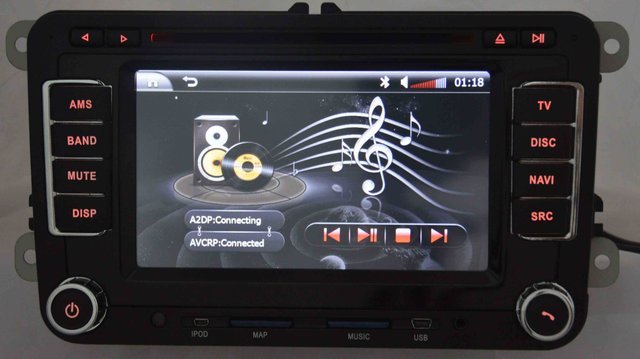Automakers Tuning-Out CD, Radio

Due to the availability of smartphones and increasing demand for audio features, automakers are increasingly phasing out the traditional integrated car radio in favour of smartphone compatible units sporting touch screens and satnav,
The in-facia car radio
The radio with its dials and knobs and buttons might not be phased out yet but it's certainly on its way out as automakers aren't prepared to spend money tinkering with it.
Instead, they're focusing on the next generation of in-car entertainment which incoproates web browsing and audio streaming.
Start-up automaker Detroit Electric plans to be lead the way with its first car in August 2013. The vehicles audio will be provided through a smartphone.
Thilo Koslowski, from research firm Gartner, told the Detroit News: "AM and FM as a delivering mechanism aren't going to be the most important in cars any more. By 2020 many people will be consuming radio content through avenues other than terrestrial broadcast."
That means we will still listen to radio stations in our car but but access stations through the internet or directly through their car's infotainment system.
'Digital lifestyle convergence'
Koslowski calls this "digital lifestyle convergence" as automakers provide drivers access to music files, texts, phone calls, Web-based radio and other content people are accustomed to receiving on their smartphones, iPads and laptop computers.
It's already a reality.
Ford has already launched its MyFord system in its Focus and Fiesta models in SA. General Motors says it will soon offer high-speed 4G mobile internet capabilities in its cars. Despite the competition, Ed Cohen, vice-president of measurement innovation at media and marketing research firm Arbitron, says 90% of adults aged 25-54 listen to the radio and it was still the top choice among drivers for in-car entertainment.
The new era of radio
Cohen said: "Yes, we are going away from the traditional radio in the centre stack with dials. By having more choices in there, is that going to change things a lot? I think the automakers haven't fully figured it out yet."
Ford's director of electrical and electronics systems, Jim Buczkowski, said: "We're trying to give them lots of options."
While Ford had "no plans to eliminate" AM/FM, Buczkowski acknowledged the face of radio in its cars had changed.
One of the strongest cases against abandoning terrestrial radio in favour of wi-fi or 4G streaming was the current limit of new technologies. In most markets there is inconsistent wireless coverage and using cellphone data has become more costly as telecommunications companies tighten unlimited options.
Tap into wi-fi
By contrast, terrestrial radio is free and can be heard, within its limits, without interference or interruption. Koslowski, however, says eventually it will make more sense to listen to the radio through wi-fi or data plans which allow listeners to tap in to thousands of stations worldwide.
He said: "You can listen to internet radio in San Francisco and some stations buffer content, so even if you drop out of coverage there won't be an interruption.
"In the future you may use the Cloud and I foresee cellphone carriers getting more creative with their data plans."
End of the cd player
The CD player became irrelevant to many drivers when automaker introduced USB ports, since flash drives and audio devices allows drivers to stream their music files.
CDs are still the second most-popular choice, after radio for in-car entertainment, according to the latest Arbitron data. Some automakers are already are dumping them to save space and weight.
Automotive analysts predict that new cars, except those targeted at older buyers, will not have a CD player by 2020.
John Canali, a senior analyst specialising in automotive multimedia at Boston-based Strategy Analytics, doesn't see radio going in the same direction. "You just don't want to alienate customers."
Related News


